Alfa Romeo Junior vs Citroen Spacetourer – Differences & prices compared
Compare performance, boot capacity, efficiency and price at a glance.
Find out which car is the better choice for you – Alfa Romeo Junior or Citroen Spacetourer?
Costs and Efficiency:
When it comes to price and running costs, the biggest differences usually appear. This is often where you see which car fits your budget better in the long run.
Alfa Romeo Junior has a clearly perceptible advantage in terms of price – it starts at 25700 £, while the Citroen Spacetourer costs 33100 £. That’s a price difference of around 7440 £.
Fuel consumption also shows a difference: Alfa Romeo Junior manages with 4.80 L and is therefore significantly more efficient than the Citroen Spacetourer with 7.30 L. The difference is about 2.50 L per 100 km.
In terms of energy consumption, the advantage goes to the Alfa Romeo Junior: with 15.10 kWh per 100 km, it’s decisively more efficient than the Citroen Spacetourer with 23.70 kWh. That’s a difference of about 8.60 kWh.
As for range, the Alfa Romeo Junior performs somewhat better – achieving up to 410 km, about 59 km more than the Citroen Spacetourer.
Engine and Performance:
Power, torque and acceleration say a lot about how a car feels on the road. This is where you see which model delivers more driving dynamics.
When it comes to engine power, the Alfa Romeo Junior has a noticeable edge – offering 280 HP compared to 177 HP. That’s roughly 103 HP more horsepower.
In acceleration from 0 to 100 km/h, the Alfa Romeo Junior is convincingly quicker – completing the sprint in 5.90 s, while the Citroen Spacetourer takes 10.60 s. That’s about 4.70 s faster.
In terms of top speed, the Alfa Romeo Junior performs slightly better – reaching 206 km/h, while the Citroen Spacetourer tops out at 185 km/h. The difference is around 21 km/h.
There’s also a difference in torque: Citroen Spacetourer pulls to a small extent stronger with 400 Nm compared to 345 Nm. That’s about 55 Nm difference.
Space and Everyday Use:
Cabin size, boot volume and payload all play a role in everyday practicality. Here, comfort and flexibility make the difference.
Seats: Citroen Spacetourer offers clearly more seating capacity – 9 vs 5.
In curb weight, Alfa Romeo Junior is convincingly lighter – 1380 kg compared to 1953 kg. The difference is around 573 kg.
In terms of boot space, the Citroen Spacetourer offers clearly more room – 2011 L compared to 415 L. That’s a difference of about 1596 L.
In maximum load capacity, the Citroen Spacetourer performs significantly better – up to 3300 L, which is about 2020 L more than the Alfa Romeo Junior.
When it comes to payload, Citroen Spacetourer decisively takes the win – 914 kg compared to 420 kg. That’s a difference of about 494 kg.
Who wins the race?
The Alfa Romeo Junior proves to be only a minor advantage and therefore becomes our DriveDuel Champion!
Alfa Romeo Junior is the better all-rounder in this comparison.
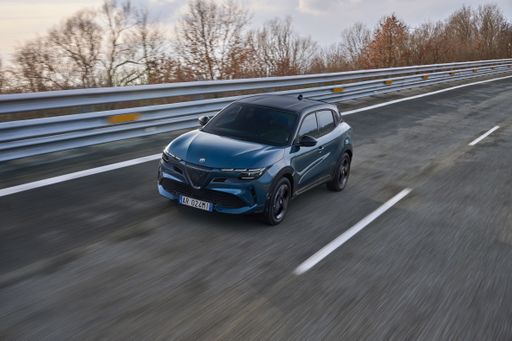 @ Alfa Romeo / Stellantis Media
@ Alfa Romeo / Stellantis Media
Alfa Romeo Junior
Alfa Romeo Junior
The Alfa Romeo Junior captures the essence of Italian design with its sleek lines and compact dimensions, making it an icon of elegance and performance. With a spirited driving experience and a charming retro aesthetic, it appeals to enthusiasts and casual drivers alike. This delightful car embodies the brand's rich heritage while remaining a fun and engaging option for those seeking a unique automotive experience.
details @ Alfa Romeo / Stellantis Media
@ Alfa Romeo / Stellantis Media
 @ Alfa Romeo / Stellantis Media
@ Alfa Romeo / Stellantis Media
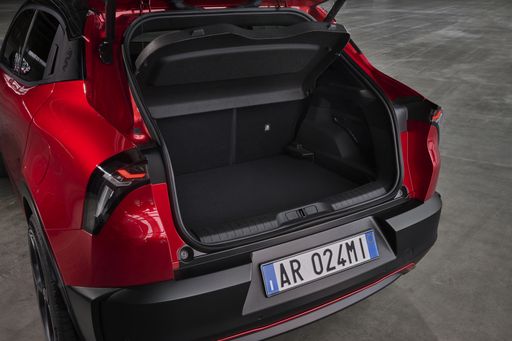 @ Alfa Romeo / Stellantis Media
@ Alfa Romeo / Stellantis Media
Citroen Spacetourer
The Spacetourer redefines versatility with its spacious interior and comfortable seating for families and groups. Its stylish exterior and thoughtful design features make it not just a practical choice, but an attractive one for modern drivers. Whether for daily commutes or adventurous road trips, the Spacetourer seamlessly blends functionality and flair.
details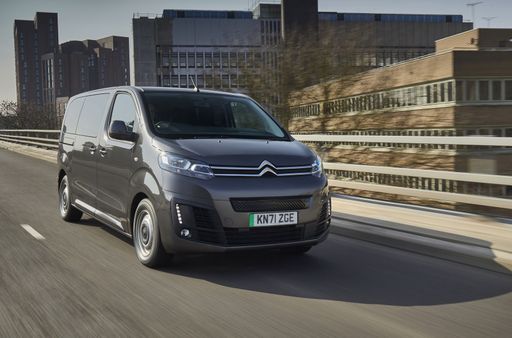 @ Citroën / Stellantis Media
@ Citroën / Stellantis Media
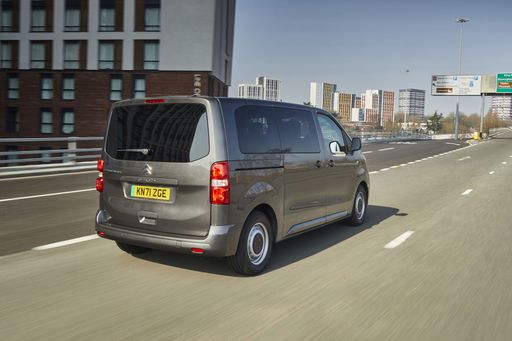 @ Citroën / Stellantis Media
@ Citroën / Stellantis Media
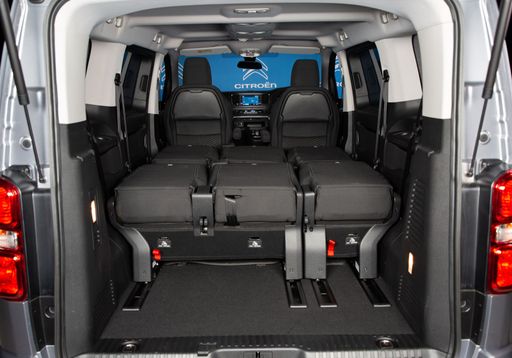 @ Citroën / Stellantis Media
@ Citroën / Stellantis Media
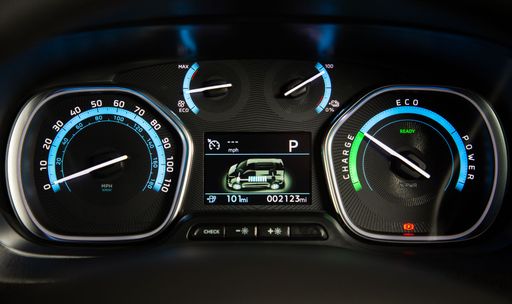 @ Citroën / Stellantis Media
@ Citroën / Stellantis Media
 @ Alfa Romeo / Stellantis Media
@ Alfa Romeo / Stellantis Media
|
 @ Citroën / Stellantis Media
@ Citroën / Stellantis Media
|
|
|
|
Costs and Consumption |
|
|---|---|
|
Price
25700 - 41600 £
|
Price
33100 - 52100 £
|
|
Consumption L/100km
4.8 - 5.4 L
|
Consumption L/100km
7.3 - 7.4 L
|
|
Consumption kWh/100km
15.1 - 17.5 kWh
|
Consumption kWh/100km
23.7 - 24.4 kWh
|
|
Electric Range
344 - 410 km
|
Electric Range
217 - 351 km
|
|
Battery Capacity
0.4 - 51 kWh
|
Battery Capacity
-
|
|
co2
0 - 119 g/km
|
co2
0 - 194 g/km
|
|
Fuel tank capacity
44 - 45 L
|
Fuel tank capacity
70 L
|
Dimensions and Body |
|
|---|---|
|
Body Type
SUV
|
Body Type
Bus
|
|
Seats
5
|
Seats
8 - 9
|
|
Doors
5
|
Doors
5
|
|
Curb weight
1380 - 1689 kg
|
Curb weight
1953 - 2240 kg
|
|
Trunk capacity
340 - 415 L
|
Trunk capacity
1624 - 2011 L
|
|
Length
4173 mm
|
Length
4983 - 5333 mm
|
|
Width
1781 mm
|
Width
1920 mm
|
|
Height
1505 - 1538 mm
|
Height
1890 mm
|
|
Max trunk capacity
1205 - 1280 L
|
Max trunk capacity
2700 - 3300 L
|
|
Payload
390 - 420 kg
|
Payload
850 - 914 kg
|
Engine and Performance |
|
|---|---|
|
Engine Type
Electric, Petrol MHEV
|
Engine Type
Electric, Diesel
|
|
Transmission
Automatic
|
Transmission
Automatic
|
|
Transmission Detail
Dual-Clutch Automatic, Reduction Gearbox
|
Transmission Detail
Reduction Gearbox, Automatic Gearbox
|
|
Drive Type
Front-Wheel Drive, All-Wheel Drive
|
Drive Type
Front-Wheel Drive
|
|
Power HP
136 - 280 HP
|
Power HP
136 - 177 HP
|
|
Acceleration 0-100km/h
5.9 - 9.1 s
|
Acceleration 0-100km/h
10.6 - 12.1 s
|
|
Max Speed
150 - 206 km/h
|
Max Speed
130 - 185 km/h
|
|
Torque
230 - 345 Nm
|
Torque
260 - 400 Nm
|
|
Number of Cylinders
3
|
Number of Cylinders
4
|
|
Power kW
100 - 207 kW
|
Power kW
100 - 130 kW
|
|
Engine capacity
1199 cm3
|
Engine capacity
1997 cm3
|
General |
|
|---|---|
|
Model Year
2024 - 2025
|
Model Year
2024 - 2025
|
|
CO2 Efficiency Class
A, C, D
|
CO2 Efficiency Class
A, G
|
|
Brand
Alfa Romeo
|
Brand
Citroen
|
What drive types are available for the Alfa Romeo Junior?
Available configurations include Front-Wheel Drive or All-Wheel Drive.
The prices and data displayed are estimates based on German list prices and may vary by country. This information is not legally binding.
